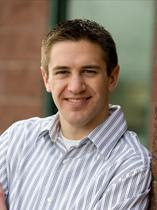If Microsoft were to redesign the original iPod packaging, which would you buy? This classic marketing video still makes a great point about simplicity.
I'm currently reading Viktor Frankl's Man's Search For Meaning, and it's changing my life. Or at least I hope it is. Frankl survived the Nazi concentration camps, and he wrote this book to explore the psychological motivations for the horrible actions he witnessed.
To this point (I'm approximately halfway through the book), Frankl has primarily provided details of life in a concentration camp and personal anecdotes that would make one shudder. But his overarching theme is starting to emerge. Frankl suffered more than almost any of us will ever have to suffer, and yet, thankfully, he survived long enough to grasp an eternal truth in a way many of us will never experience. This quote is long, but I'm including it below. I hope you can benefit from it as much as I have.
In attempting this psychological presentation and a psychopathological explanation of the typical characteristics of a concentration camp inmate, I may give the impression that the human being is completely and unavoidably influenced by his surroundings. (In this case the surroundings being the unique structure of camp life, which forced the prisoner to conform his conduct to a certain set pattern.) But what about human liberty? Is there no spiritual freedom in regard to behavior and reaction to any given surroundings? Is that theory true which would have us believe that man is no more than a product of many conditional and environmental factors--be they of a biological, psychological or sociological nature? Is man but an accidental product of these? Most important, do the prisoners' reactions to the singular world of the concentration camp prove that man cannot escape the influences of his surroundings? Does man have no choice of action in the face of such circumstances?
We can answer these questions from experience as well as on principle. The experiences of camp life show that man does have a choice of action. There were enough examples, often of a heroic nature, which proved that apathy could be overcome, irritability suppressed. Man can preserve a vestige of spiritual freedom, of independence of mind, even in such terrible conditions of psychic and physical stress.
We who lived in concentration camps can remember the men who walked through the huts comforting others, giving away their last piece of bread. They may have been few in number, but they offer sufficient proof that everything can be taken from a man but one thing: the last of the human freedoms--to choose one's attitude in any given set of circumstances, to choose one's own way.
...It is this spiritual freedom--which cannot be taken away--that makes life meaningful and purposeful.
We do not have to endure what Frankl endured. And yet we are granted the same spiritual freedom. How are we using it?
To this point (I'm approximately halfway through the book), Frankl has primarily provided details of life in a concentration camp and personal anecdotes that would make one shudder. But his overarching theme is starting to emerge. Frankl suffered more than almost any of us will ever have to suffer, and yet, thankfully, he survived long enough to grasp an eternal truth in a way many of us will never experience. This quote is long, but I'm including it below. I hope you can benefit from it as much as I have.
In attempting this psychological presentation and a psychopathological explanation of the typical characteristics of a concentration camp inmate, I may give the impression that the human being is completely and unavoidably influenced by his surroundings. (In this case the surroundings being the unique structure of camp life, which forced the prisoner to conform his conduct to a certain set pattern.) But what about human liberty? Is there no spiritual freedom in regard to behavior and reaction to any given surroundings? Is that theory true which would have us believe that man is no more than a product of many conditional and environmental factors--be they of a biological, psychological or sociological nature? Is man but an accidental product of these? Most important, do the prisoners' reactions to the singular world of the concentration camp prove that man cannot escape the influences of his surroundings? Does man have no choice of action in the face of such circumstances?
We can answer these questions from experience as well as on principle. The experiences of camp life show that man does have a choice of action. There were enough examples, often of a heroic nature, which proved that apathy could be overcome, irritability suppressed. Man can preserve a vestige of spiritual freedom, of independence of mind, even in such terrible conditions of psychic and physical stress.
We who lived in concentration camps can remember the men who walked through the huts comforting others, giving away their last piece of bread. They may have been few in number, but they offer sufficient proof that everything can be taken from a man but one thing: the last of the human freedoms--to choose one's attitude in any given set of circumstances, to choose one's own way.
...It is this spiritual freedom--which cannot be taken away--that makes life meaningful and purposeful.
We do not have to endure what Frankl endured. And yet we are granted the same spiritual freedom. How are we using it?
Subscribe to:
Posts (Atom)





